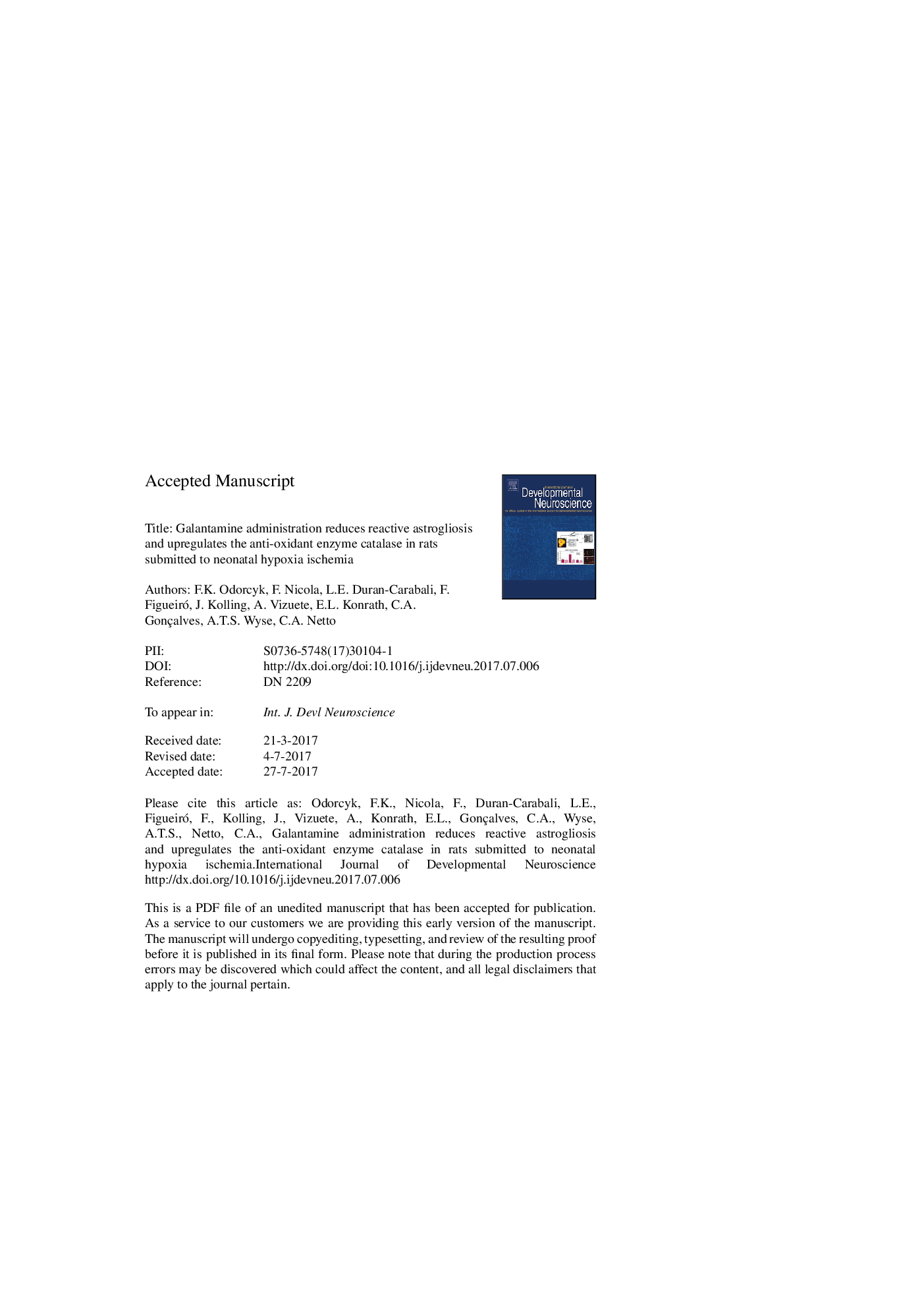| Article ID | Journal | Published Year | Pages | File Type |
|---|---|---|---|---|
| 5585781 | International Journal of Developmental Neuroscience | 2017 | 25 Pages |
Abstract
Neonatal hypoxia ischemia (HI) plays a role in the etiology of several neurological pathologies and causes severe sequelae. Acetylcholine is a neurotransmitter in the central nervous system and cholinesterase inhibitors have demonstrated a positive action over HI induced deficits. In order to evaluate the effects of pre and post-hypoxia administrations of galantamine, a cholinesterase inhibitor, in a model of perinatal HI, Wistar rats in the post-natal day 7 (PND7) were subjected to a combination of unilateral occlusion of the right carotid artery with the exposure to a 1Â h hypoxia. Intraperitoneal injections of galantamine were administered in two different protocols: one pre and other post-hypoxia. The analysis of brain structures volume at PND45 showed that pre-hypoxia galantamine treatment prevented tissue injury to the ipsilesional hippocampus. Also, immunofluorescence showed HI-induced increase in the number of astrocytes that was prevented by pre-hypoxia treatment. Biochemical analysis was performed in the ipsilesional hippocampus at PND8 and revealed that pre-hypoxia galantamine treatment: 1) prevented the neuronal loss induced by HI; 2) reduced the HI-induced hypertrophy of astrocytes; and 3) caused an increase in the activity of the anti-oxidant enzyme catalase. Overall, treatment with galantamine was able to prevent the brain damage, increase the survival of neurons, reduce astrocytic reaction and increase the activity of the anti-oxidant enzyme catalase in rats submitted to neonatal hypoxia ischemia.
Related Topics
Life Sciences
Biochemistry, Genetics and Molecular Biology
Developmental Biology
Authors
F.K. Odorcyk, F. Nicola, L.E. Duran-Carabali, F. Figueiró, J. Kolling, A. Vizuete, E.L. Konrath, C.A. Gonçalves, A.T.S. Wyse, C.A. Netto,
